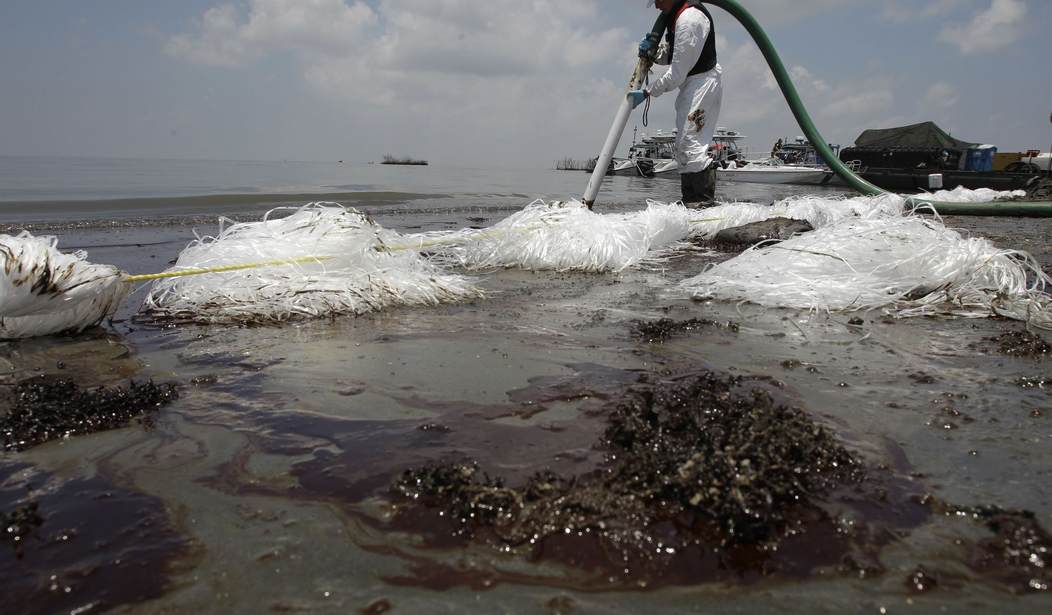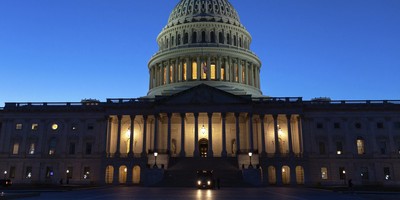It started out as a sweeping proposal to open coastal waters all around the United States to exploration and exploitation for oil. No doubt in just that order. Only now this administration is having second and much better thoughts after the people and politicians of Florida voiced what sounded like a near-unanimous reaction to this administration's not-so-bright idea. Which was not only No, but Hell No.
For it would have been the first time in some three decades that the federal government had put a For Lease sign on its oceanic riches. Yep, it sounded as if this wayward administration had found the ideal way to unite the country -- against it. Since then, the reaction of Floridians was echoed up and down coastal America.
The upshot: Ryan Zinke, secretary of the Interior, had found himself face-to-face with a gathering storm of American public opinion -- and he blinked. Once the secretary had flown to the Tallahassee International Airport to meet with Florida's Gov. Rick Scott, he had changed his tune to one much more in harmony with the will of the American people.
"I support the governor's position that Florida is unique and its coasts are heavily reliant on tourism as an economic driver," Secretary Zinke announced. "As a result of discussion with Gov. Scott and his leadership, I am removing Florida from consideration for any new oil and gas platforms."
But what state isn't unique when it comes to the need to protect its natural resources from a rapacious administration? Every state has natural attractions that deserve protection. What does Secretary Zinke think all those other states with coastline are -- chopped liver? Each has its own claim to fame and fortune -- and, more to the political point, each is about to hold midterm elections. And their people aren't about to shut up and let the feds have their way with this country's environmental birthright.
Recommended
Some of us are old enough to remember when environmentalists were called conservationists. And the Deepwater Horizon disaster -- the largest oil spill in American history -- has left an indelible impression on our consciousness and conscience. Please, not again. One such disaster is more than enough to last a lifetime.
While they were at it, the political masterminds in charge of plotting the Republican Party's course in this year's midterm elections also seem to have stumbled on a sure way to lose those elections and, with them, their party's majorities in the country's House and Senate. Should that happen, the GOP can't claim it wasn't warned by the opposition.
Bob Graham, a former Democratic governor and U.S. senator from Florida, also happened to co-chair the presidential commission that investigated the Deepwater Horizon calamity within this very decade. If this administration had followed through on its Trumped-up plan to leave Florida to the not very tender mercies of the oil-and-gas industry, the GOP would have alienated that state's voters not just in this year's elections but for years to come. Marco Rubio, the Republican senator from Florida, was savvy enough to oppose the administration's plan to declare open season on Florida's most valuable resource: its coastline and all the treasures it embraces.
Federal jurisdiction of the waters over the outer continental shelf begins right offshore and then goes on for 200 miles out to sea. Another cataclysmic oil spill could drench Florida's beaches and oceanic life with oil. Backpedaling as fast as she could, Heather Swift, a spokeswoman for the U.S. Interior Department, assured one and all that this plan to put Florida at risk was just a trial balloon. "What we rolled out last week," she now emphasizes, "was a draft plan. We will go through a rigorous and robust public-comment period where we will hear from local stakeholders who both support and oppose aspects of the plan."
What a pity the administration didn't consult public opinion before it produced this oily mess of a plan instead of afterward. It ignored the first rule of prudent leaders: When in a hole, stop digging. Or in this case, stop drilling. As of Feb. 3, 10 other governors had joined Florida's to ask the secretary of the Interior to exempt their states from the plan to expand offshore drilling. According to North Carolina Gov. Roy Cooper, "We told (Secretary Zinke) there is no 100 percent safe method to drill for oil and gas off the coast, particularly in our area off of North Carolina that sees nor'easters, that sees hurricanes. We don't call it the 'Graveyard of the Atlantic' for nothing, it would be catastrophic if there were to be an oil spill."
Erik Milito, a director for the American Petroleum Institute, sounds as if he's decided to rely on hope rather than experience as this all-too familiar crisis mounts. "We're hoping we have as many options left on the table as possible," he now says, "but we understand there's politics at play." For a lot of votes, not to mention good will, are at stake in this confrontation. Fishing, tourism, and military operations could all be affected as our coastlines find themselves in the crosshairs of federal policy or lack thereof.
You would think that federal policymakers would have learned better after Disaster No. 1 -- but they haven't. Which is why Disaster No. 2 looms on the deep-water horizon.

























Join the conversation as a VIP Member